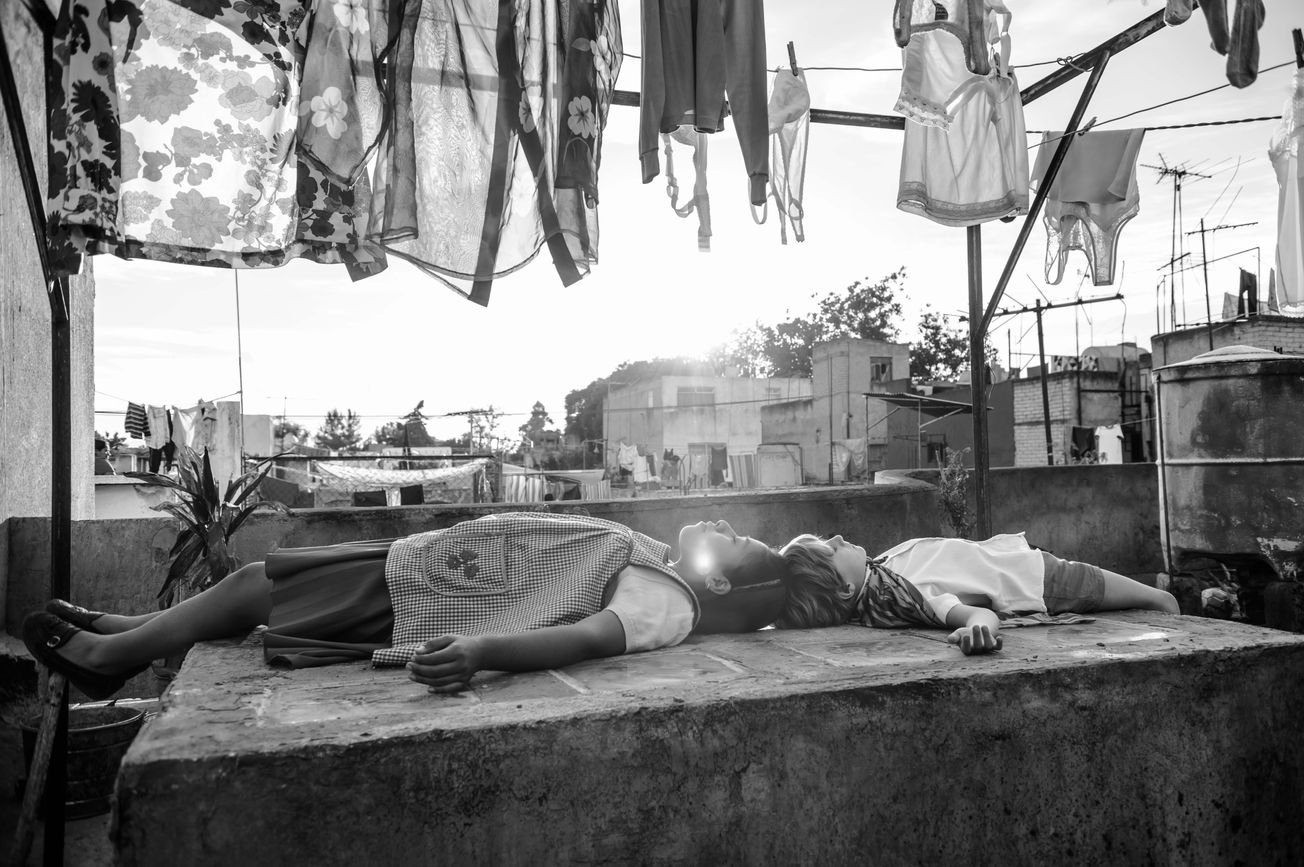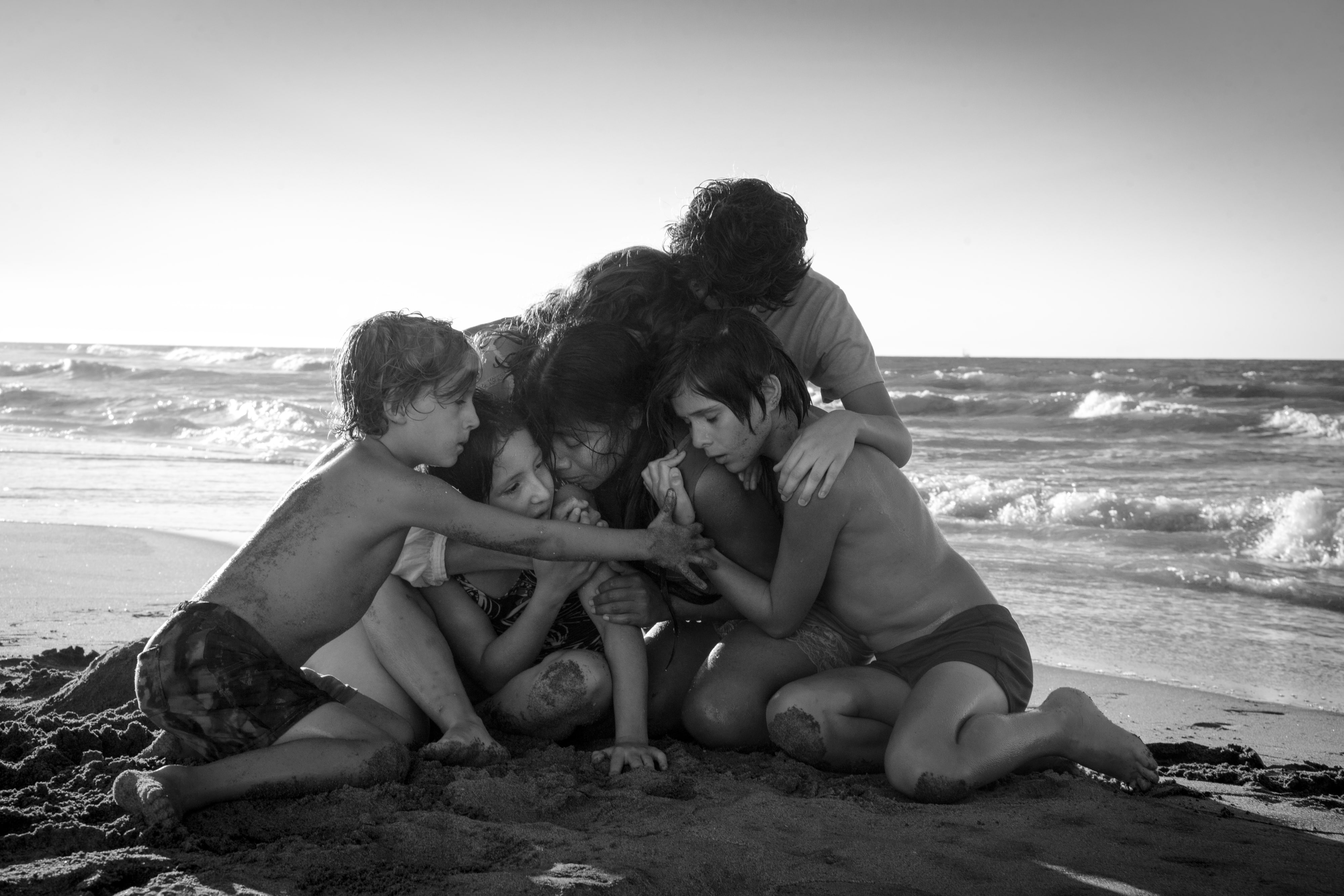By Patrick Sullivan, Film & TV Editor
Alfonso Cuarón does all but star in Roma, an observational ode to his childhood cleaner. He directs, writes, produces and even serves as Director of Photography for this wonderful, black and white, Spanish language, Netflix original drama.
Roma is a subtle tearjerker without trying hard at all, which is a great compliment to the inexperienced cast, many of whom, including native Mexican Yalitza Aparicio, acting in their first ever credit. She stars as live-in cleaner Cleo in '70s Mexico City, who goes above and beyond her employment duties to look after a mother and her four children whose lives are torn apart by the father's affair.
Youtube / Netflix
The luscious cinematography transcends everyday images to wonder. The sun gleams pure white on the Veracruz beach as Cleo wades into the ocean after two of the children, and the slow pan views of tiled floor flooded with soapy water are a portfolio of Cuarón's exquisite taste and skill with the camera.
The film is a joy for the audience because of the patience with both drama and comedy. He employs realist ideology to elevate the subject matter. The lack of non-diegetic music embodies the sincerity of the storytelling: songs are heard on the radio, shows play on the TV, and moments of silence are given time to stand out and captivate.
The comedy has two main proponents: a gorgeous 1969 Ford Galaxie and dog crap. They share the same garage in the film as Borras, the loose-bowelled house pet. Dr Antonio (Fernando Gregiara), the scorned, unfaithful patron of the house, adores his Galaxie and disdains the turd that smears his tires. He parks it inch perfectly in his tight garage. When he leaves the house early on with a younger woman, his vengeful wife, Señora Sofía (Marina de Tavira) scrapes the car all the way down the sides to fits of laughter.
Netflix Media Center / Roma
Despite being a domestic drama sprinkled with light hearted moments, there is an undercurrent of politics and violence to Roma. It spans most of 1970 and the first half of 1971, the time when authoritarian Luis Echeverría Álvarez started his presidential term and over 100 student protestors were massacred by Los Halcones, a group of elite Mexican army soldiers. Cuarón subtly weaves in a link to Cleo's romantic arc, ramping up the personal drama and refusing to let this intimate focus be lost amidst the bloodshed of the era.
At the heart of the film is the maternal role of women - and not just towards their direct children. Senora Sofīa tells a pregnant Cleo: ‘No matter what they tell you, women - we are alone.’ It is a shocking, drunken moment, not only because of de Tavira’s impassioned delivery, but because it is contradictory of the story before and after that particular moment. The pair, along with the grandmother and the four children, become an unconventional family bonded with love and formed through adversity.
Netflix Media Center / Roma
Over the closing scene of the film - a paired scene with the opening credits that slowly pans up from the tiled floor outside the house to an airplane in the sky - there is a dedication which reads: ‘For Zibo’. One assumes Zibo was a similar figure in Cuarón’s childhood and the personal importance of the film is communicated with both heartfelt care and filmmaking precision.
Alfonso Cuaron earned #GoldenGlobes noms for best director and best screenplay, and #Roma also earned a nom for best foreign-language film — but the film was left out of a top category https://t.co/zhsTgPebQo
— Hollywood Reporter (@THR) December 6, 2018
No Netflix film has won the Oscar for Best Picture before. No foreign language film has ever won both the Best Picture and Best Foreign Language categories before. Only four have ever received the pair of nominations. Already chosen by Mexico for a Best Foreign Language nomination, Roma deserves to be the film to make history.
Featured Image: Netflix Media Center / Roma
Would you have liked to have seen Roma in a Bristol cinema?
Facebook // Epigram Film & TV // Twitter











